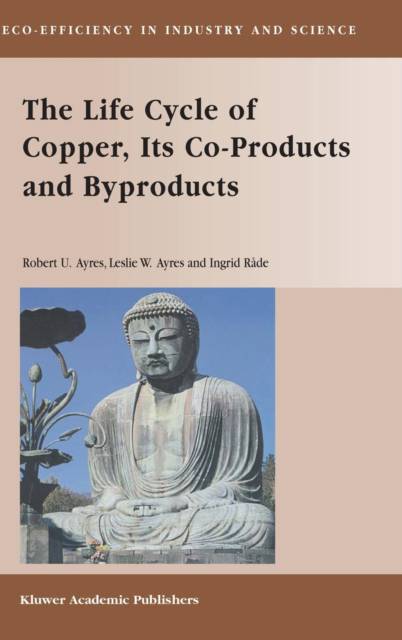
- Afhalen na 1 uur in een winkel met voorraad
- Gratis thuislevering in België vanaf € 30
- Ruim aanbod met 7 miljoen producten
- Afhalen na 1 uur in een winkel met voorraad
- Gratis thuislevering in België vanaf € 30
- Ruim aanbod met 7 miljoen producten
Zoeken
The Life Cycle of Copper, Its Co-Products and Byproducts
Robert U Ayres, Leslie W Ayres, Ingrid Råde
€ 181,95
+ 363 punten
Omschrijving
Achieving the goals and objectives of sustainable development requires better information about the consequences of proposed actions. Partial information accounts for many failed efforts in the past. The financial implications for the proponent of the projects have often been more thoroughly analyzed than the implications for other actors. The impacts on biological diversity, or on the social fabric of local communities, have often been ignored. Decisi- makers may also focus more on the short-term consequences instead of long- term impacts, creating negative unintended consequences. It is clear that better decision-making processes are needed. Making better decisions requires identifying, obtaining, synthesizing and acting on larger and more diverse data sets, including information that has previously been overlooked in development decisions. The good news is that better processes are being developed and are becoming available. If the goal is to reach decisions that are broadly understood and accepted, affected communities need to be consulted. Early public participation in defining problems is a prerequisite to effective decision-making. There is no universal formula or checklist of information applicable to every proposed project. The scope of information required should not be determined from the start by small cadres of experts. It is unlikely that any individual or small group processes all of the expertise to achieve the kind of profound int- disciplinary synthesis that is needed.
Specificaties
Betrokkenen
- Auteur(s):
- Uitgeverij:
Inhoud
- Aantal bladzijden:
- 265
- Taal:
- Engels
- Reeks:
- Reeksnummer:
- nr. 13
Eigenschappen
- Productcode (EAN):
- 9781402015526
- Verschijningsdatum:
- 30/09/2003
- Uitvoering:
- Hardcover
- Formaat:
- Genaaid
- Afmetingen:
- 168 mm x 246 mm
- Gewicht:
- 639 g

Alleen bij Standaard Boekhandel
+ 363 punten op je klantenkaart van Standaard Boekhandel
Beoordelingen
We publiceren alleen reviews die voldoen aan de voorwaarden voor reviews. Bekijk onze voorwaarden voor reviews.








